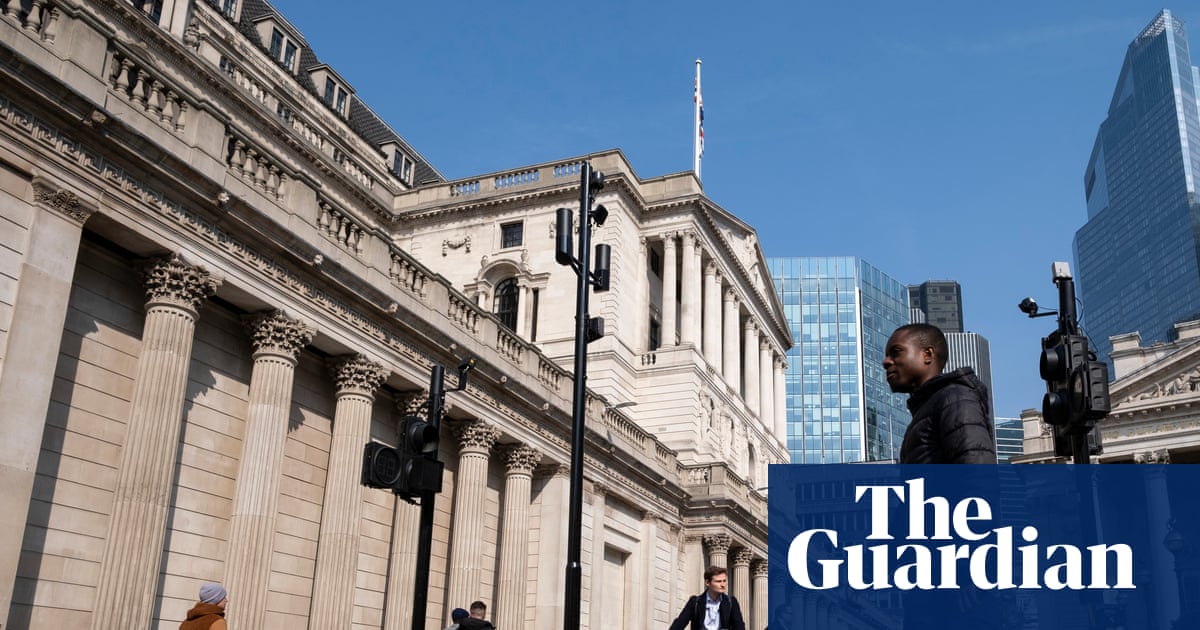The UK government’s borrowing costs have fallen to the lowest level since July as Rachel Reeves considers tax rises and spending cuts before next month’s autumn budget.
In a boost for the chancellor, the yield – in effect the interest rate – on 10-year UK government bonds has fallen by about 0.15 percentage points this week, after briefly dipping below 4.5% early on Friday for the first time in three months.
Government bond yields have tumbled across advanced economies, as investors scrambled to buy safe-haven assets amid fears over US-China trade tensions and signs of stress in the US banking system.
Global stock markets fell sharply and gold hit a record high after two US regional banks said they had been exposed to millions of dollars of bad loans and alleged fraud.
However, investors said comments made by Reeves at the annual International Monetary Fund meetings in Washington DC had helped lower UK government borrowing costs after she signalled readiness to raise taxes and cut spending.
The chancellor used a Guardian interview to hint that higher taxes targeted at the wealthy would be “part of the story” in the autumn budget next month. She also suggested in an interview with Sky News that spending cuts could be considered.
Mark Dowding, the chief investment officer at RBC BlueBay Asset Management, said: “Comments from the ruling Labour party that everything remains on the table and that spending cuts are still being considered alongside tax hikes also helped to improve gilt market sentiment, taking 10-year yields towards the lower end of the range they have traded since March this year.”
On Thursday, the Institute for Fiscal Studies (IFS) said Reeves would be required to take “bold” action to plug a potential £22bn shortfall in the government finances.
The chancellor is expected to face a sharp downgrade in the forecasts for the government finances from the Office for Budget Responsibility, owing to elevated borrowing costs, weaker productivity forecasts and welfare U-turns.
Simon French, the chief economist at Panmure Liberum, said it was unclear whether the reduction in borrowing costs in recent months would influence the OBR forecasts. The independent Treasury watchdog will use a snapshot of bond market yields over a 10-day period in October before the budget on 26 November to underpin its forecasts for borrowing costs.
“UK 10-year Gilt below 4.5% this AM for the first time since early July. Considerable question marks over whether this move will (or should) be captured by the OBR,” French wrote in a post on X.
skip past newsletter promotion
Sign up to Business Today
Get set for the working day – we’ll point you to all the business news and analysis you need every morning
Privacy Notice: Newsletters may contain information about charities, online ads, and content funded by outside parties. If you do not have an account, we will create a guest account for you on theguardian.com to send you this newsletter. You can complete full registration at any time. For more information about how we use your data see our Privacy Policy. We use Google reCaptcha to protect our website and the Google Privacy Policy and Terms of Service apply.
after newsletter promotion
The UK’s borrowing costs still remain higher than for other G7 economies, he added.
The IFS said Reeves should consider spending cuts to placate jitters in financial markets, in its annual “green budget” report prepared alongside analysts at Barclays.
At the launch of the report, Moyeen Islam, a fixed income strategist at Barclays Investment Bank, said City investors were looking for the chancellor to announce spending cuts to “burn a little bit of political capital” in order to show commitment to her fiscal rules.
The fall in UK government borrowing costs also comes after renewed evidence of economic weakness. Economic data released this week showed unemployment unexpectedly rose to 4.8%, wage growth dipped and the economy grew by 0.1% in August after revised figures showed it contracted by the same amount in July.
Dowding said the “relatively soft” data could encourage the Bank of England to cut interest rates.

